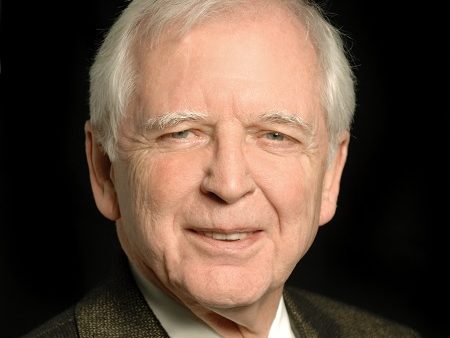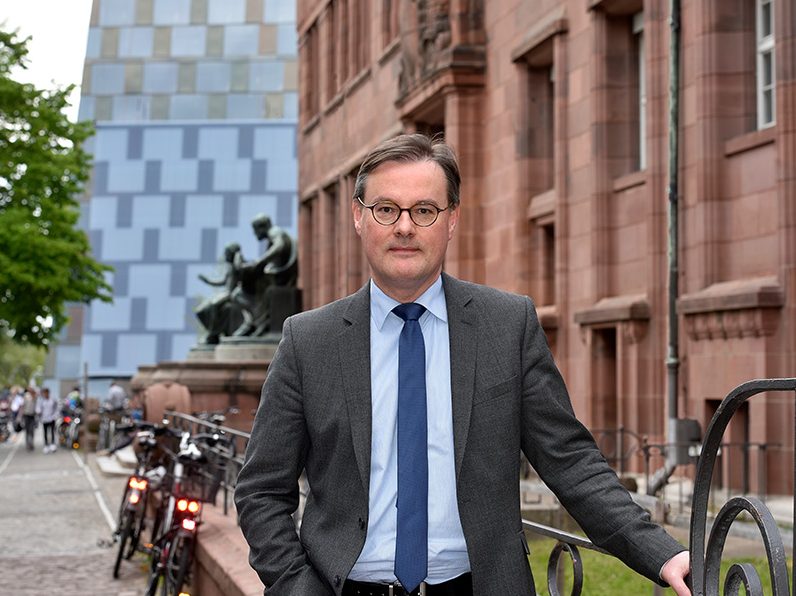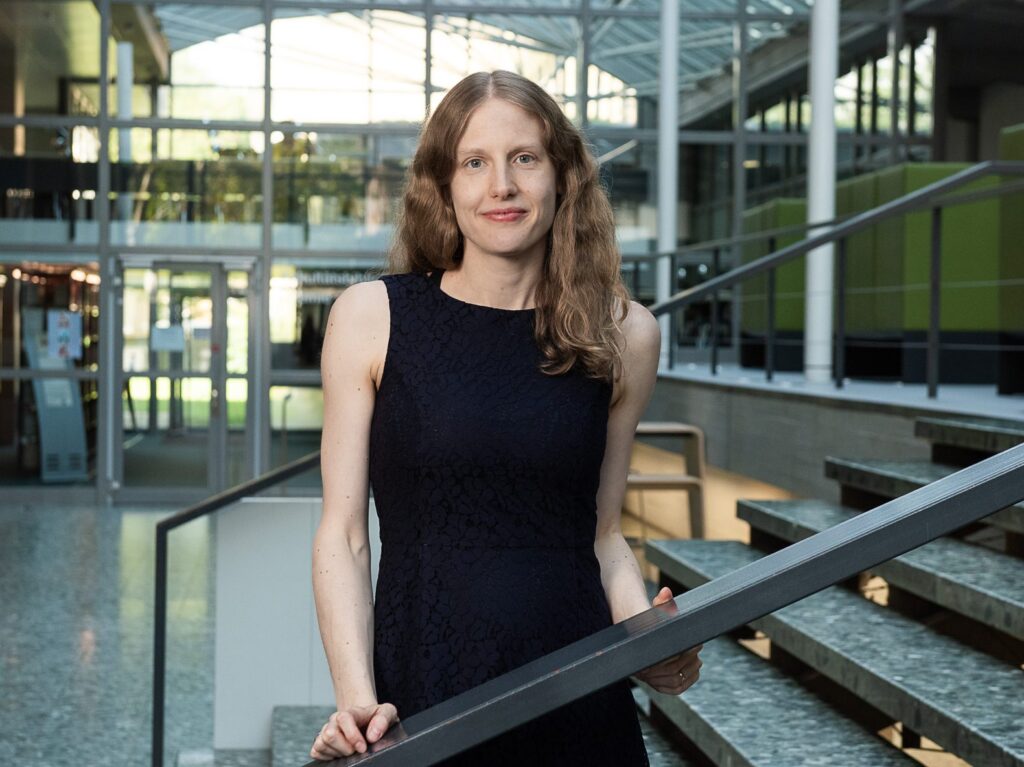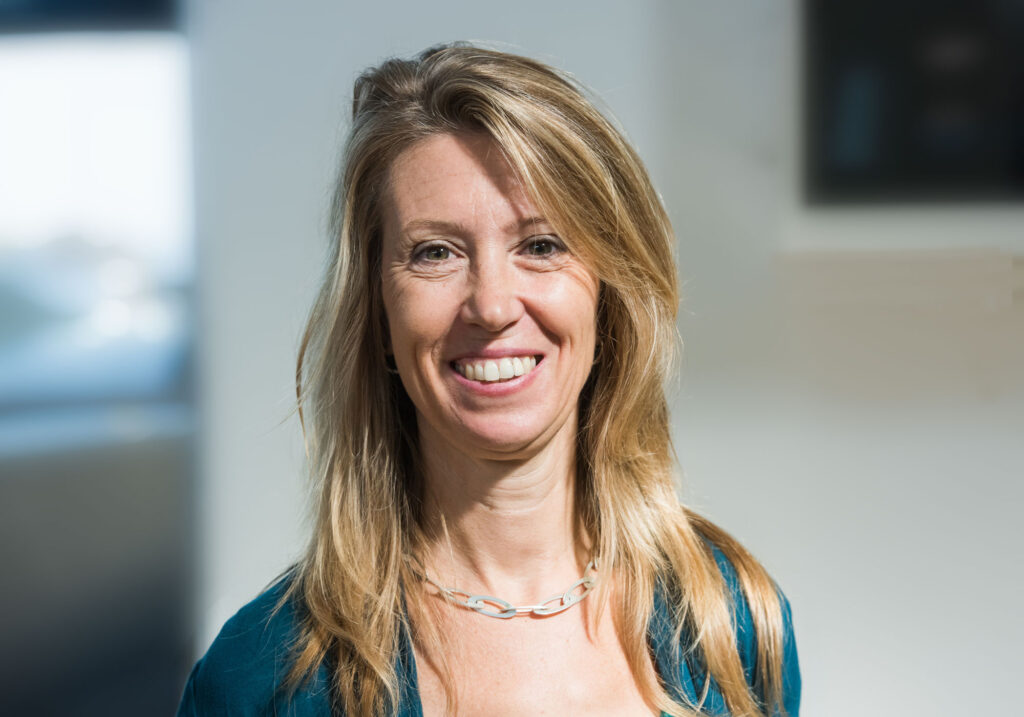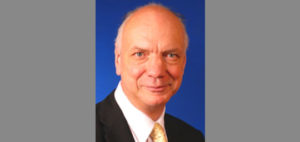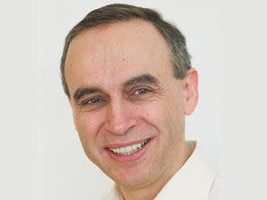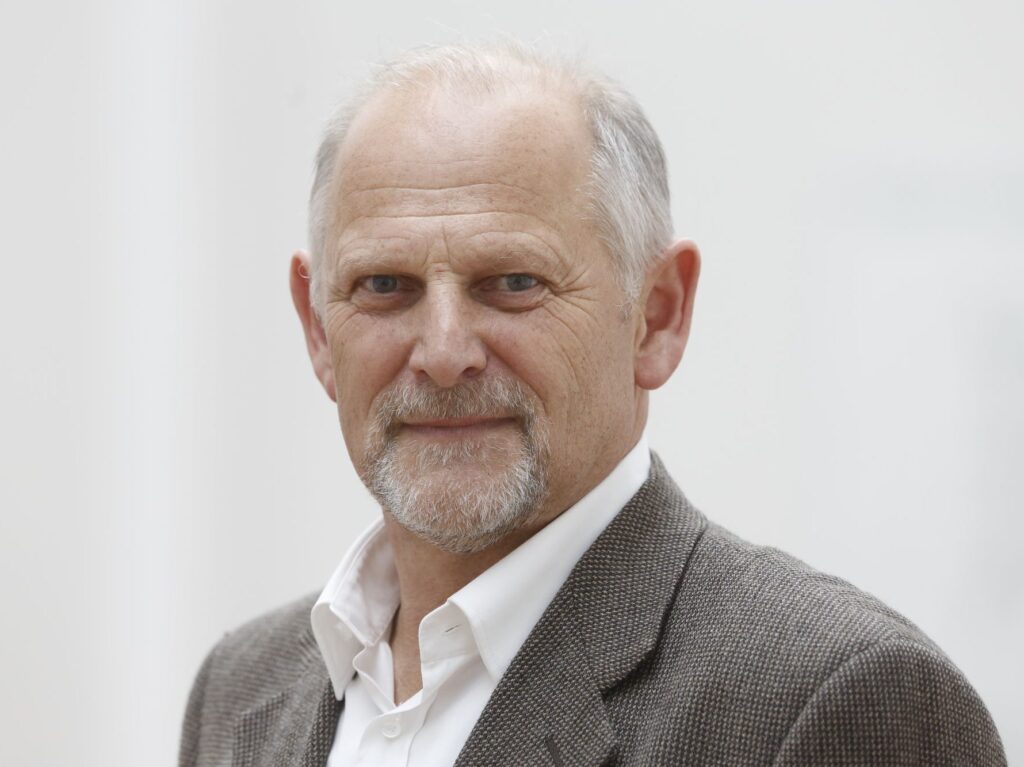All Prize Winners of the University of Freiburg
-
Georges Köhler (*1946 – †1995)
1984 Nobel Prize in Physiology or Medicine
-
Georg Wittig (*1897– †1987)
1979 Nobel Prize in Chemistry
-
Friedrich von Hayek (*1899– †1992)
1974 Prize in Economic Science in Memory of Alfred Nobel
-
Hans Adolf Krebs (*1900– †1981)
1953 Nobel Prize in Physiology or Medicine
-
Hermann Staudinger (*1881– †1965)
1953 Nobel Prize in Chemistry
-
Georg von Hevesy (*1885– †1966)
1943 Nobel Prize in Chemistry
-
Hans Spemann (*1869– †1941)
1935 Nobel Prize in Physiology or Medicine
-
Adolf Otto Reinhold Windaus (*1867– †1959)
1928 Nobel Prize in Chemistry
-
Heinrich Otto Wieland (*1877– †1957)
1927 Nobel Prize in Chemistry
University of Freiburg Research Assistants/Postgraduates
Henrik Dam, 1943 Nobel Prize in Physiology or Medicine
Carl Peter Henrik Dam (* 21 February 1895 in Copenhagen, Denmark; † 18 April 1976 in Copenhagen) was a Danish physiologist and biochemist. He received the 1943 Nobel Prize in Medicine jointly with Edward Adelbert Doisy for the discovery of vitamin K. He conducted research on the metabolism of steroids under Rudolf Schönheimer at the University of Freiburg Institute of Pathological Anatomy in 1932 and 1933.
Mario Molina, 1995 Nobel Prize in Chemistry
Mario José Molina (* 19 March 1943 in Mexico City) is a Mexican chemist. He received the Nobel Prize in Chemistry in 1995 together with the chemist Frank Sherwood Rowland and the meteorologist Paul J. Crutzen for research on the destruction of the ozone layer. He completed postgraduate studies at the University of Freiburg in the years 1966 and 1967.
Christiane Nüsslein-Volhard, 1995 Nobel Prize in Physiology or Medicine
Christiane Nüsslein-Volhard (* 20 October 1942 in Heyrothsberge near Magdeburg) is a German biologist. She received the 1995 Nobel Prize in Physiology or Medicine for her research on the genetic control of early embryonic development. In 1977 she conducted research at the laboratory of the insect embryologist Prof. Klaus Sander at the University of Freiburg on a fellowship from the German Research Foundation (DFG). In 1993 she received an honorary doctorate from the University of Freiburg.
Philip Showalter Hench, 1950 Nobel Prize in Physiology or Medicine
Philip Showalter Hench (* 28 February 1896 in Pittsburgh, Pennsylvania; † 30 March 1965 in Ocho Rios, Jamaica) was an American physician. From 1928 to 1930, Hench conducted research on arthritic diseases at the University of Freiburg and the University of Munich. He received the Nobel Prize in Medicine in 1950 together with Edward Calvin Kendall and Tadeus Reichstein for discoveries concerning the hormones of the adrenal cortex, their structure, and their biological effects.
Dudley Robert Herschbach, 1986 Nobel Prize in Chemistry
Dudley Robert Herschbach (* 18 June 1932 in San Jose, California) is an American chemist. Herschbach was awarded the 1986 Nobel Prize in Chemistry together with Yuan T. Lee and John C. Polanyi for his work in the area of the dynamics of chemical processes. Herschbach researched at the University of Freiburg as a Guggenheim Fellow in 1968.
Students of the University of Freiburg
Paul Ehrlich, 1908 Nobel Prize in Physiology or Medicine
Paul Ehrlich (* 14 March 1854 in Strehlen, Breslau Administrative District, Province of Silesia; † 20 August 1915 in Bad Homburg vor der Höhe) was a German doctor and researcher. In 1908 he received the Nobel Prize in Physiology or Medicine together with Ilya Mechnikov for contributions to immunology. Ehrlich studied medicine in Breslau, Strasbourg, and Freiburg. During his time as a medical student in Freiburg, he discovered the mast cells, an important part of the immune system.
Otto Fritz Meyerhof, 1922 Nobel Prize in Physiology or Medicine
Otto Fritz Meyerhof (* 12 April 1884 in Hanover; † 6 October 1951 in Philadelphia, Pennsylvania) was a German biochemist. He and Archibald Vivian Hill received the Nobel Prize in Physiology or Medicine in 1922 for their research on metabolism in the muscle. After completing his schooling in the year 1903, Meyerhof studied medicine and philosophy in Freiburg and Strasbourg until 1906.
Otto Heinrich Warburg, 1931 Nobel Prize in Physiology or Medicine
Otto Heinrich Warburg (* 8 October 1883 in Freiburg im Breisgau; † 1 August 1970 in Berlin) was a German biochemist, doctor, and physiologist. In 1931 he received the Nobel Prize in Physiology or Medicine for his discovery of the nature and mode of action of the respiratory enzyme. A Freiburg native, Warburg studied natural sciences with an emphasis on chemistry at the University of Freiburg upon completing secondary school in 1901, chemistry at the Friedrich Wilhelm University of Berlin starting in 1903, and medicine in Berlin, Munich, and Heidelberg starting in 1905.
Otto Stern, 1943 Nobel Prize in Physics
Otto Stern (* 17 February 1888 in Sohrau, Upper Silesia; † 17 August 1969 in Berkeley) was a German physicist who immigrated to the USA in 1933. In 1943 he received the Nobel Prize in Physics in recognition of his contribution to the development of the molecular ray method and his discovery of the magnetic moment of the proton. Upon completing school in Breslau in 1906, he studied mathematics and natural sciences in Freiburg, Munich, and Breslau.
Johannes Hans Daniel Jensen, 1963 Nobel Prize in Physics
Johannes Hans Daniel Jensen (* 25 June 1907 in Hamburg; † 11 February 1973 in Heidelberg) was a German physicist. He and Maria Goeppert-Mayer received the 1963 Nobel Prize in Physics for their discoveries concerning nuclear shell structure. Jensen studied physics, mathematics, physical chemistry, and philosophy starting in 1926 at the Universities of Hamburg and Freiburg.
Bert Sakmann, 1991 Nobel Prize in Physiology or Medicine
Bert Sakmann (*12 June 1942 in Stuttgart) is a German physician. He and Erwin Neher received the Nobel Prize in Physiology or Medicine in 1991 for their discoveries concerning the patch clamp technique. He studied medicine until 1967 at the Universities of Freiburg, Tübingen, Berlin, Paris, and Munich.
Günter Blobel, 1999 Nobel Prize in Physiology or Medicine
Günter Klaus-Joachim Blobel (* 21 May 1936 in Waltersdorf, Sprottau District, Silesia, † 18 February 2018 in New York City, USA) is an American biochemist of German origin. He received the 1999 Nobel Prize in Physiology or Medicine for the discovery that proteins have intrinsic signals that govern their transport and localization in the cell. He left for West Germany as an 18-year-old in 1954 and studied medicine in Freiburg, Frankfurt, Munich, and Kiel.
Joachim Frank, 2017 Nobel Prize in Chemistry
Joachim Frank (* 12 September 1940 in Weidenau an der Sieg) is a German-American biophysicist. He received the 2017 Nobel Prize in Chemistry together with Jacques Dubochet and Richard Henderson for research on and methodological developments in single-particle analysis using electron microscopy. After completing his intermediate examination at the University of Freiburg (1963), he went on to graduate from LMU Munich with a diplom degree in physics (1967) and earn his doctorate at TU Munich (1970).
